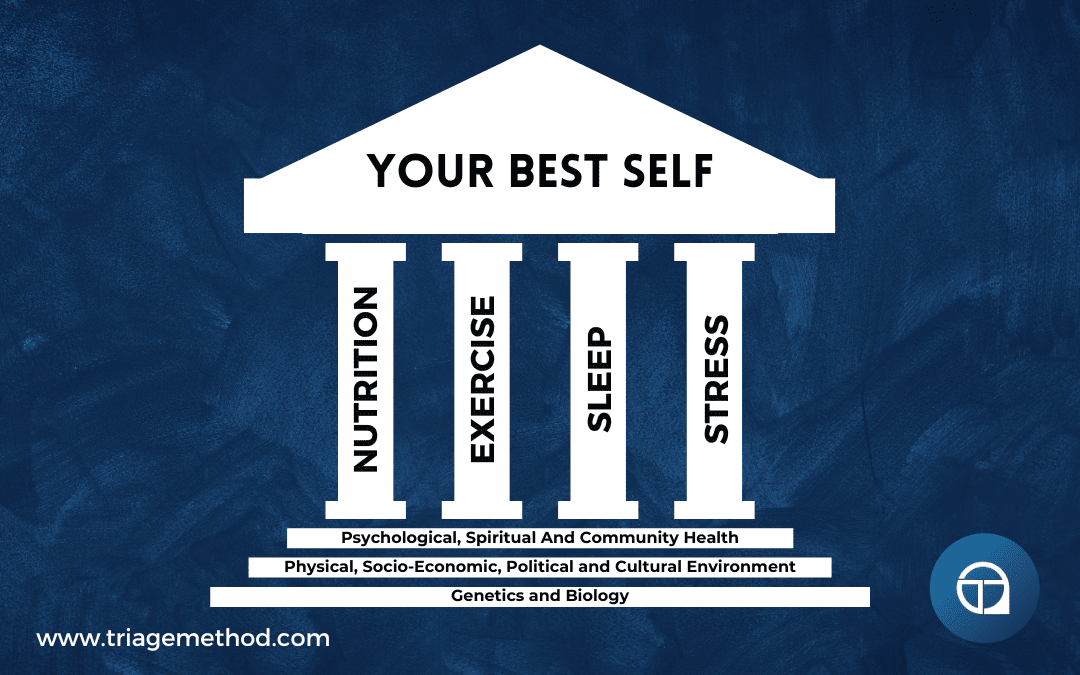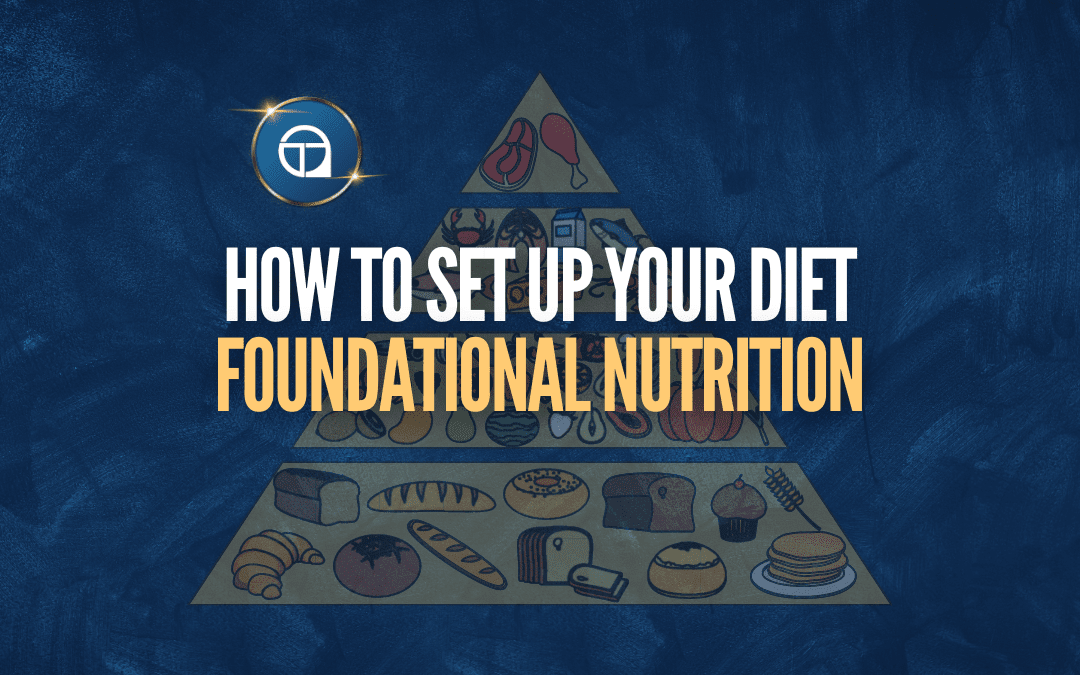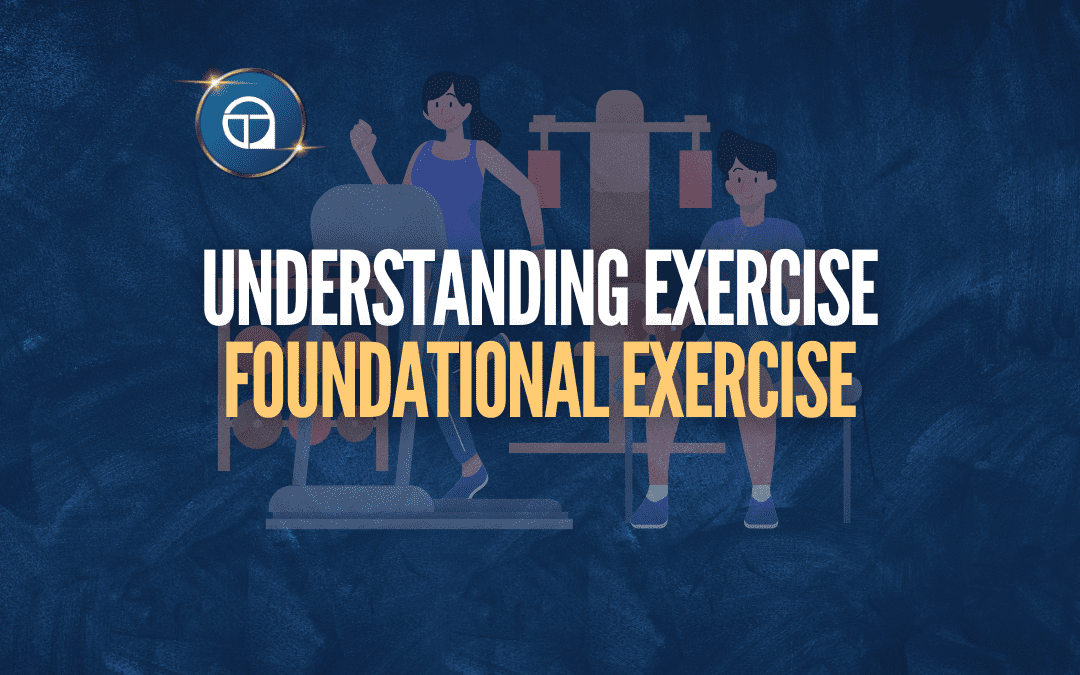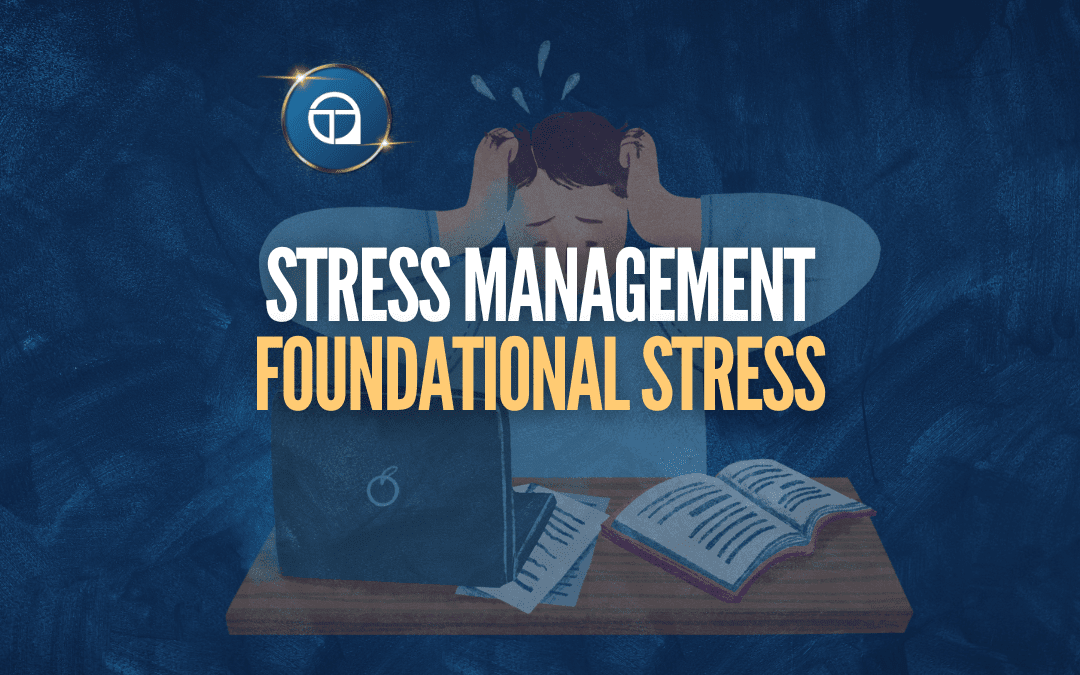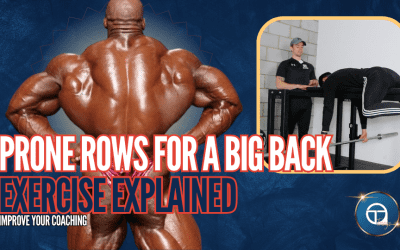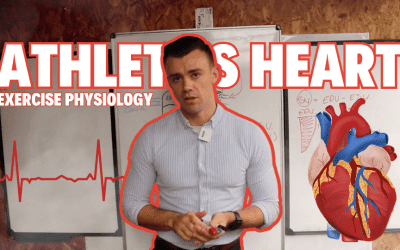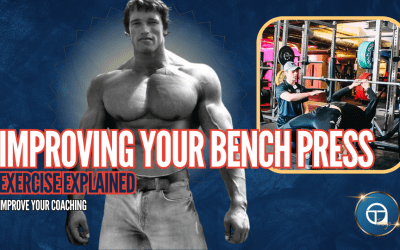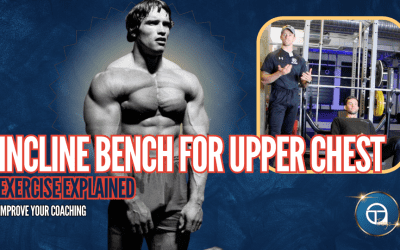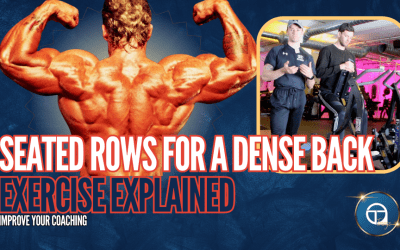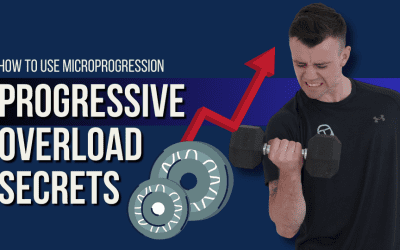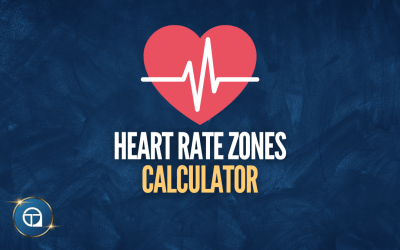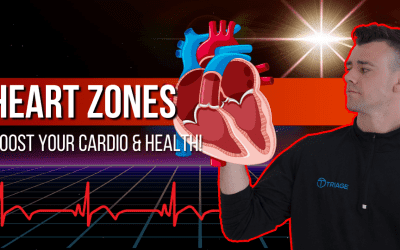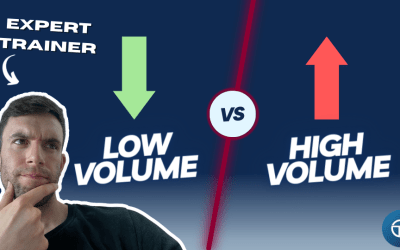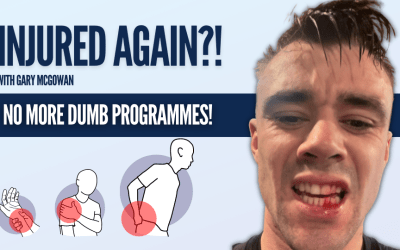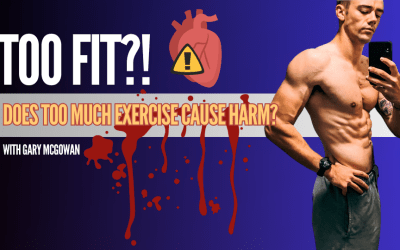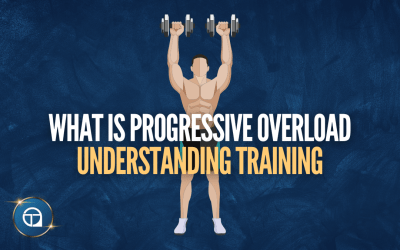EXERCISE
Expand your knowledge of all things exercise!
Get better results, faster.
Exercise is probably one of the most impactful things you can do for your health, and unfortunately, too few people actually engage in meaningful exercise. Most people are aware of how important nutrition is, and they can more immediately see the effects of poor sleep and poor stress management, but most people are unaware of how important exercise actually is. In fact, most people tend to overemphasise the importance of the effects of nutrition on health, and drastically underemphasise the importance of exercise on health.
Now, this makes sense, because we all have to eat, but we don’t all have to exercise (or so it seems). Exercise, in the modern world, is seen as something that you choose to do. It isn’t necessary, but it is good if you can do it. A “nice to do” rather than a “need to do”. Unfortunately, this thinking has led many people to struggle with their health, their body composition and their performance in everyday life. Exercise is actually a foundational component of what makes a healthy human and it should be viewed as such, if you wish to be your best self.
The goal of this exercise page is to give you a resource you can use to learn how to set up your training program using good evidence-based information and the latest science. However, we want to not only show you why exercise is so important, but to then also help you to understand the fundamentals of training, so you can actually engage in an effective and enjoyable exercise program that is tailored to your specific needs.
We believe in empowerment through education, so we think it is important to have some understanding of the why behind various training principles. Most people unfortunately only really learn to engage with exercise in a choreographed manner (i.e. they follow specific movement choreography and follow specific programs), and this tends to hold most people back from actually achieving their goals.
Most people get too caught up in fancy or advanced protocols but they don’t actually have the foundational understanding of why certain things work or what they should be focusing on. As a result, they don’t have a plan that is actually sustainable for life. They jump from one program to another, they aren’t able to ever get the results they desire, and most of them just end up dropping out of exercise altogether.
Ultimately, we want you to be able to engage in exercise for life, and the only way we can ensure that, is if we help you understand what goes into making an effective training program. The more you understand, the easier it will be to tweak your exercise habits to get results, and actually accommodate the other things that are going on in your life. If you learn the principles behind exercise, rather than just learning about specific protocols, you will be able to make much better exercise decisions, and you will be less likely to fall for fitness marketing.
This is the very same way we coach people, because we ultimately want all our coaching clients to not need us by the end of coaching. We want them to be able to coach themselves, and the only way we can ensure that they can do that is by ensuring they have a good understanding of the principles behind exercise. They don’t need to be experts, but you would be surprised at how far you can go with just a fundamental understanding of exercise principles.
Exercise does tend to be the area that generates the most confusion (compared to nutrition, sleep or stress management), so don’t be discouraged if you feel there is a lot you don’t know. It will all come together with time.
This page is part of our fundamentals series, where we house our content on the key pillars of building “your best self”. Being your best self means you are able to engage with the world how you want to engage with the world and ultimately, accomplish the goals you have in life. Regardless of what that actually looks like for you, if you can get the pillars set up correctly, you give yourself the best opportunities to accomplish everything you want to in this life.
The foundations of the broader society you find yourself in also matter, as do the genetics you were born with or the biology you were born with or acquired (your “biology” could change due to accident or injury, for example, you may have become paralysed, and thus your “biology” has changed), as does your mental and spiritual health, and of course, the health of your local community and support systems. However, much of the foundations are out of our active control, but we can work to set up the pillars as best we can, given the circumstances we find ourselves in. On this page, we discuss exercise, but we do also have pages on nutrition, sleep and stress.
If you want more free information on exercise, you can follow us on Instagram, YouTube or listen to the podcast, where we discuss all the little intricacies of exercise. We also offer coaching if you need help with your own exercise program. Finally, if you want to learn how to coach nutrition, then consider our Nutrition Coach Certification course. If you don’t understand something, or you just need clarification, you can always reach out to us on Instagram or via email. You can always stay up to date with our latest content by subscribing to our newsletter.
NUTRITION
Learn how to set up your diet for long term success!
EXERCISE
Learn about all things exercise, and how to train effectively for your goals!
SLEEP
Learn about all things sleep hygiene, so you can get good sleep consistently!
STRESS
Learn more about what stress is and how to better manage your stress!
Foundational Exercise Knowledge
The following articles will give you a very good baseline understanding of exercise, from why it is important all the way to designing an effective exercise program. You can view this as something like a foundational textbook of how to design an effective exercise program. There is obviously a lot more information to know, but after reading this section, you should have a very good understanding of how to design an effective program and how to tailor it to your needs.
Resistance Training
- Resistance Training For Muscle & Strength
- Exercise Selection, Variety and Ordering
- Understanding Reps
- RIR & RPE (Do You Need To Train To Failure)
- Rep Tempo and Time Under Tension
- Training Volume (How Many Sets Should You Do)
- Rest Periods
- Review of Resistance Training Guidelines
Cardiovascular Training
- Why Do Cardio Training?
- Cardio Programming
- Foundational Cardio Protocols
- Review of Cardiovascular Training Guidelines
Flexibility & Mobility Training
Plyometric Training
Foundational Program Design
- Designing An Actual Workout Program
- Training Progression (Progressive Overload)
- Periodisation
- Exercise Program Design Overview
Exercise Resources & Tools
Here you will find a variety of resources and tools that can help you with your program design, and exercise efforts. We have many resources and tools planned out, so please do check back frequently to stay up to date with what we are building.
Additional Exercise Knowledge
We have a lot of additional exercise content in the pipeline, including a comprehensive exercise database, additional articles, case studies, and much more. If you want to stay up to date with everything as it is built out, please sign up to our newsletter. The newsletter will keep you informed of all our work, and it also gives you an opportunity to interact with us and help guide the content we create. Ultimately, we want this page to be a resource that actually helps YOU, so your input is incredibly valuable.
You can subscribe to our newsletter HERE.
Training Theory
- Tracking Indirect Training Volume
- The Science of Hybrid Training: How to Balance Lifting & Running
- Should You Do High Volume Or Low Volume For Muscle Growth
- How To Use Micro-Progressions In The Gym
- Progressive Overload Methods
- What Is Progressive Overload? How To Make Progress In the Gym
- What’s the best workout split?
- The Modern Environment Is Pathologically Sedentary
- What Is Zone 2 Training (and Why Is Everyone Talking About It)?
Specific Exercise Discussions
Exercise Case Studies
Exercise programming is tricky, and while you can spend a lot of time building out your foundational knowledge, sometimes you do just need to see things in action. Case studies are a phenomenal way to see how to deal with specific challenges, and how to adjust exercise accordingly. You may have a client dealing with a specific issue, or you may have a specific issue yourself, and seeing a case study on the topic can be really helpful in at least pointing you in the right direction with things.
Latest Posts On Exercise
Prone Row (Seal Row) Proper Set Up
The prone row (often called the seal row), is an exercise that many people use to grow their back musculature. However, to use it effectively, you do actually need to set it up correctly. The prone row can be a phenomenal exercise for developing the upper back, if...
Heart Adaptations To Exercise
There are specific heart adaptations to exercise, and these are very often poorly understood. So, in this article, I am going to be discussing these heart adaptations and what they mean for you. I'm going to be discussing the heart with an emphasis on exercise, and in...
Bench Press Masterclass: How To Set Up Correctly
Today we're going to talk through some of the variables at play during the flat bench press. This is an important one to really think about what your client's goal actually is, because if your client's goal is to come into the gym for general health, maybe build a bit...
Using The Incline Bench Press For The Upper Chest
Most people are generally aware that when we want to train the upper pec, the clavicular part of the pec, you are probably going to be told that you should be using the incline bench press, or at least some sort of incline pressing variation. This is generally sound...
How To Use The Plate Loaded Seated Row To Build A Big Back
How To Use The Plate Loaded Seated Row https://youtu.be/6OdW8sXL2dE Exercise Features Muscles Worked: Latissimus dorsi (lats), trapezius (traps), rhomboids, rear deltoids, and biceps. If you take a "neutral" (narrower, with palms facing each other) grip,...
How To Use Micro-Progressions In The Gym
Today, I want to talk to you about progressive overload but specifically how to use micro-progressions in the gym. This is one of the most neglected concepts in the gym. Everyone talks about progressive overload, and what they're often talking about is adding 5, 10,...
Heart Rate Zones Calculator
We very often use heart rate zones with our coaching clients, and we often discuss various heart rate zone-based training protocols in our content, so we created a free heart rate zones calculator to allow you to calculate your own heart rate zones! Heart rate zones...
Understanding Heart Rate Zones
You may have heard people discuss heart rate zones with respect to running training, endurance training, or even cardio training in the gym. And you may be unsure what these heart rate zones actually means, and what they can be used for. So that is what we aim to get...
Should You Do High Volume Or Low Volume For Muscle Growth?
Should you do high volume or low volume for muscle growth? This is one of those questions that gets endlessly debated in health and fitness circles, and there are strong opinions on both sides. When we take on new coaching clients, we see people very often paralysed...
How To Prevent Injuries With Smart Programming
As many of you will know one of my special areas of interest as it relates to my coaching practice with Triage is that of helping people through pain, and helping to teach people how to prevent injuries with smart programming. So whether that be a new injury or a...
Can You Be Too Fit?
Can you be too fit for your health? That's the question that we're going to answer today and the reason I want to answer this question is not because there are loads of people out there thinking that they shouldn't exercise because it's unhealthy. But rather that...
What Is Progressive Overload? How To Make Progress In the Gym
Progressive overload is a concept that’s absolutely foundational to making real progress in the gym, but is often misunderstood or misapplied. Now, I’ve coached a lot of people over the years, from total beginners to competitive athletes, and one thing I see over and...

